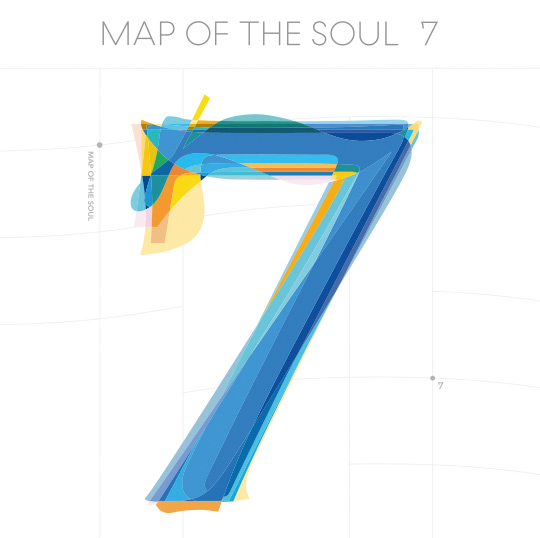“Map of the Soul: 7” charts the varied cartography of BTS – from its dipping potential and misfires to its sonic diversity and deliberation.
On Friday, BTS released its seventh album, establishing a basis for career reflection in both lyrics and sound. The contemplative record has been the most personal the septet has released to date, covering themes like the effects of fame on youth and fear of success. A far more lyrically mature album awaits listeners who desire a refreshing departure from the tight binds of template-made love songs. But unfortunately, the latter half of the album crumbles under the intricate pathways that early songs outline.
Following the record’s opening five songs – which appeared on the group’s previous album, “Map of the Soul: Persona” – BTS starts the new set of tracks with a two-act interlude, “Interlude : Shadow.” A sudden shift from softer to intense, Travis Scott-esque verses for the song’s final minute is a refreshing sonic journey that establishes the album as an unexpected fever dream of genres. The track provides a tastefully auto-tuned introduction to the pensive album, grappling with the relationship between the band members’ famed personas and their simpler realities.
[Related: Album review: Green Day leaves boulevard of broken dreams in wake of underwhelming 13th album]
The album successfully picks up momentum with the cyclical “Black Swan,” delicately sung between transient trap bass and gentle acoustic guitar. The unlikely pair provides a dreamy, tastefully minimalistic track, but not one that is anticlimactic. The track’s never-ending nature is a novel way to introduce an album, with a structureless song to establish potential. Unfortunately, it is an opportunity that BTS fails to take advantage of.
The band remains genreless as the eighth track, “Filter,” combines Latin eight-count separations with honeyed – and at times guttural – vocals for a discussion of manipulating one’s personality. The enticing track properly carries the album’s momentum and provides a genre-bending release from previous songs.
The album continues with a triad of lyrically and sonically intense tracks, including “ON.” The song’s title calls back the group’s 2013 song “N.O” but subverts many of its sounds with an unexpected marriage of marching band and gospel influences. Although the track’s emphasis on brass instruments makes it sound like a college football game at times, the subversive pairing between the two genres successfully straddles the line between tacky and inspirational.
[Related: Album review: Tame Impala blends past and future in highly anticipated fourth album]
“UGH!,” despite having an underdeveloped name, is a rap song perfectly nestled between too angsty and too choppy. Playing on punk and rock genres, BTS’s rappers break out of the smoother tracks preceding it to provide foothills of energy that break up the smoother songs.
But “UGH!” is a turning point for an initially strong album. The following triad of “00:00 (Zero O’Clock),” “Inner Child” and “Friends” is sonically unremarkable and fails to climb the high peaks that the album’s early songs left it to scale. BTS’s own fear of being usurped by its past is actualized in these later songs, which are a structureless dip in the album’s momentum. The trilogy of songs provides little distinct sound because of its immature composition, leading to a passive and lackluster listening experience.
But “We are Bulletproof : the Eternal” finally crawls out of the valley the three preceding songs created. Calling upon song titles from its first album, BTS reflects in this solemn ode to the unity of the group, as four of the seven group members croon “we are together, bulletproof” throughout the song. Despite the track’s attempt at redemption, the lull centered in the album is not fully atoned for until the final track, “Outro : Ego.” The rap song similarly calls back to previous albums but in a transformative farewell, submerged in ad-libs and excitable brass that provide a refreshing peak to the album’s termination.
The diversity and introspection of each track in “Map of the Soul: 7” are only afforded to groups who have had long and successful careers, and fortunately, BTS falls in that category. However, the album’s disappointing second half cowers in its own shadow, making the release a blip in the group’s nearly universally successful career.




